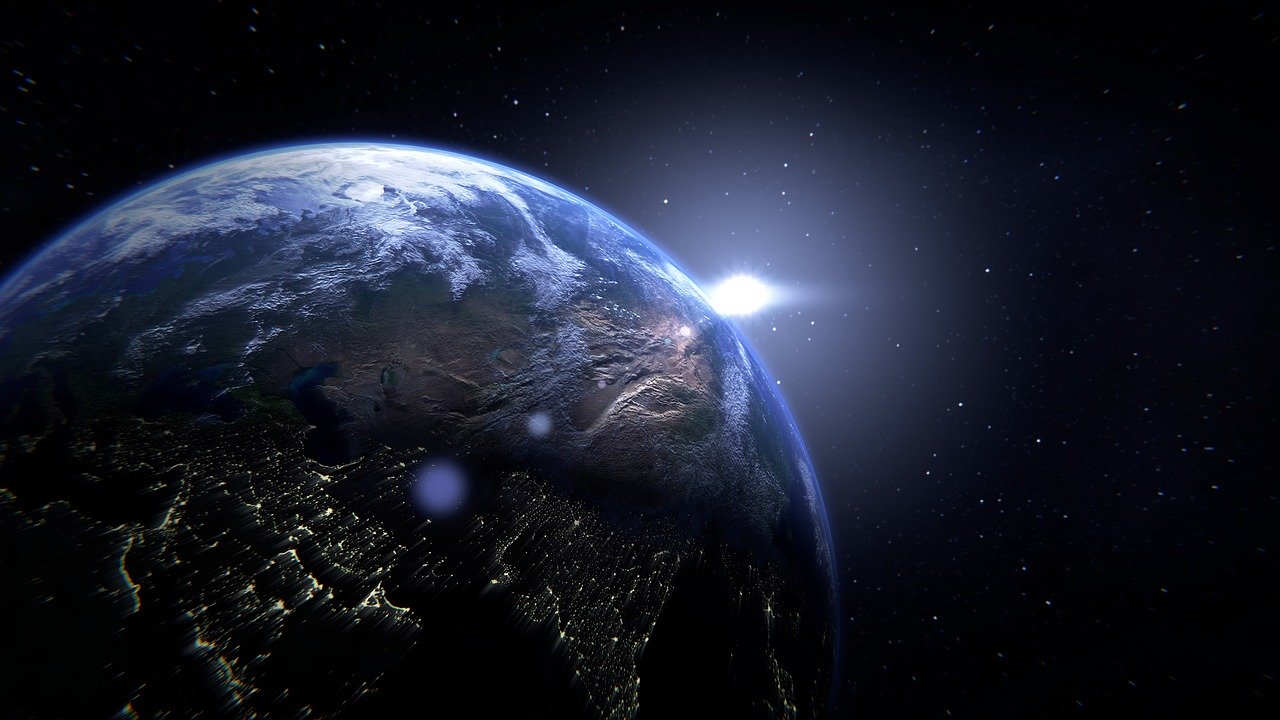
The fragile nature of our planet has never been so pronounced - which makes the 50th anniversary of Earth Day, on April 22, such a significant occasion, according to Flinders University Associate Professor Alice Gorman.
Known internationally as Dr Space Junk for her expertise in space archaeology, Associate Professor Gorman says the COVID-19 pandemic has forced people to think expansively about our planet and its future - from ecological degradation to how humans affect all aspects of the environment, including what is being rocketed into space.
She says that Earth Day - first celebrated 50 years ago in the United States - has had a profound impact on how we view the environment.
"On this anniversary it's time to take stock of the planet as a whole, not just our little corner of it," says Associate Professor Gorman. "What's happening with our atmosphere, fresh water and biodiversity? Space is part of all this. We've filled Earth's orbit with junk, and now there are plans to mine the Moon so that people can go and live on Mars. It's crucial for us to consider and debate all of this."
Associate Professor Gorman is one of 35 international experts who have contributed chapters for a new book, Earth 2020: An Insiders' View of a Rapidly Changing Planet. Edited by Philippe Tortell (Head of the Department of Earth, Ocean and Atmospheric Science at the University of British Colombia, Canada) and published by Open Book, the new book examines concerns about the deterioration of Earth's natural systems, offering readers perspectives about our shared ecological past, and on the future trajectory of planet Earth.
"It's an important and timely book, written by world-leading thinkers on the front-lines of global change research and policy," say Associate Professor Gorman, who has contributed a chapter on the effects of accumulated space junk orbiting the Earth.
"This multi-disciplinary collection maintains a dual focus: some essays investigate specific facets of the physical Earth system, while others explore the social, legal and political dimensions shaping the human environmental footprint.
"The experts who have written this are highlighting the urgent need for collaboration across diverse domains of expertise, to address one of the most significant challenges facing us."
Reflecting on the origins of Earth Day, the event marks the mobilisation of 10% of the US population in 1970 that led to the establishment of the Environment Protection Agency and legislation to ensure clean air and water.
"Especially in these times, it's encouraging to remember that people can achieve change by working from the grass roots," says Associate Professor Gorman.
"Half a century on from the first Earth Day, we're now grappling with the Anthropocene, which is the idea that human activities are altering the planet so much that they'll leave a distinct geological layer visible millions of years from now.
"We need everyone to seek a deeper understanding of the past, present and future of our planet, and the role of humanity in shaping this trajectory.
"We've seen so much of the best of human nature in the tough times we've experienced already in 2020. I like to be optimistic, and think that we can make wise decisions for the future. We have more power than we know."
- Earth 2020: An Insiders' View of a Rapidly Changing Planet is free to download: https://www.openbookpublishers.com/10.11647/obp.0193.pdf






